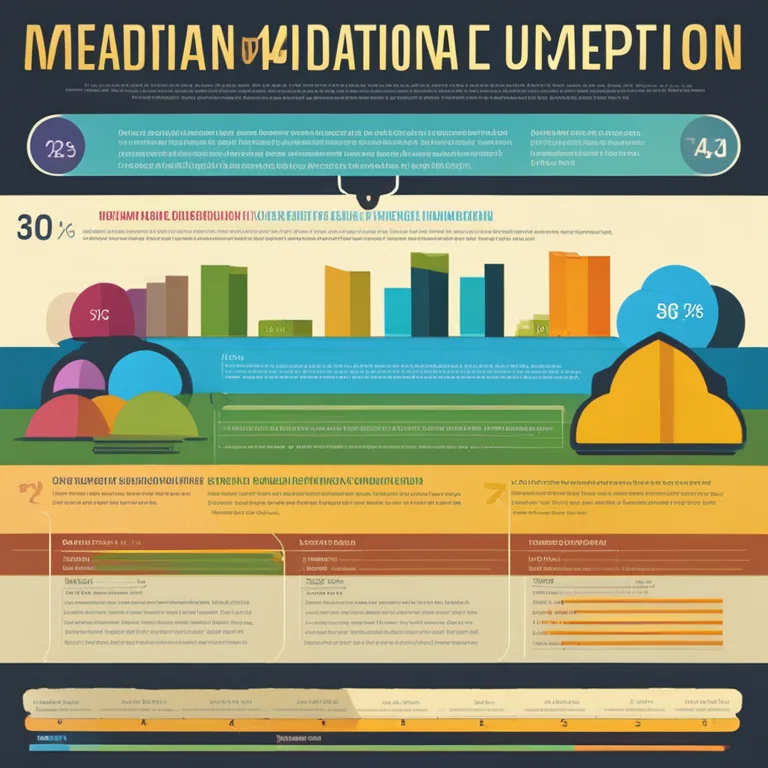
Unlocking Optimal Duration for Mindfulness Meditation
Discover the ideal length of time for practicing mindfulness meditation to enhance your mental well-being and focus.
article by Hina Kurosawa
Introduction to Mindfulness Meditation
Meditation has transitioned from ancient tradition to modern wellness staple, with mindfulness meditation becoming particularly popular. This form of meditation centers around the concept of being intensely aware of what you are sensing and feeling in the moment, without interpretation or judgment. In our fast-paced world, it can serve as a tranquil harbor for stressed minds. The practice involves breathing methods, guided imagery, and other practices to relax the body and mind and help reduce stress.

Individualized Approach to Meditation
A common question among beginners is how long they should meditate to see benefits. The answer is two-fold: while specific guidelines exist, meditation is also profoundly personal. Mindfulness is not one-size-fits-all, and the optimal duration of practice may vary between individuals. Studies suggest that even brief sessions of meditation can be beneficial, making it an accessible practice for people with busy lifestyles.

The Science of Meditation Duration
Research in the mindfulness domain has evolved over the years, and with it, the understanding of effective meditation duration. Various studies have suggested that meditating for just 10 minutes a day can bring about noticeable improvements in concentration, mood, and stress levels. However, longer sessions ranging from 20 to 45 minutes may lead to more profound states of relaxation and greater psychological benefits.

Building Your Mindfulness Practice
For newcomers, starting with shorter sessions can be less daunting, promoting consistency. It's beneficial to begin with 5 to 10 minutes daily and gradually extend the duration as comfort with the practice grows. This gradual approach helps build the habit and fosters a deeper connection to the meditative process without feeling overwhelmed. The key is consistent practice, more so than the length of each session.

Customizing Your Meditation Journey
As mindfulness is a customizable practice, it's crucial to listen to your body and mind. Some days, you may find that a 10-minute session is all you can accommodate, while on others, you might be inclined to go longer. Mindfulness encourages staying present and being non-judgmental about your capacities. What's important is making a habit of regular meditation, rather than fixating on the clock.
Advanced Mindfulness Techniques
For seasoned practitioners, longer sessions can be more beneficial. These extended periods can deepen the practice, promoting enhanced self-awareness and insight. Long-term meditators might find sessions that last an hour or more to be particularly fulfilling. Nonetheless, the most suitable duration is one that aligns with your individual goals and lifestyle while maintaining the essence of mindfulness.
Mindfulness Meditation in Modern Times
In recent years, the integration of technology in mindfulness practice has seen the emergence of numerous apps and online platforms that guide users through various meditation durations. These digital tools offer flexibility and can help meditators structure their practice, often providing various session lengths to cater to different schedules and experience levels. The digital era has indeed made mindfulness meditation more accessible and adaptable to contemporary life.
Published: 1/8/2024
Modified: 1/8/2024
More predictions
Come back here soon to learn more about yourself and your future


Meditation's Impact on the Limbic System
Explore how meditation can positively influence your emotional and neurological well-being through its effects on the limbic system.


Calming the Student Mind: A Guide to Mindfulness Meditation
Discover how mindfulness meditation can benefit high school students, offering a practical solution for stress management and enhanced focus in the academic environment.


Mindfulness Meditation Benefits for High Schoolers
Discover how mindfulness meditation can help high school students navigate academic pressure, enhance focus, and improve overall wellbeing.